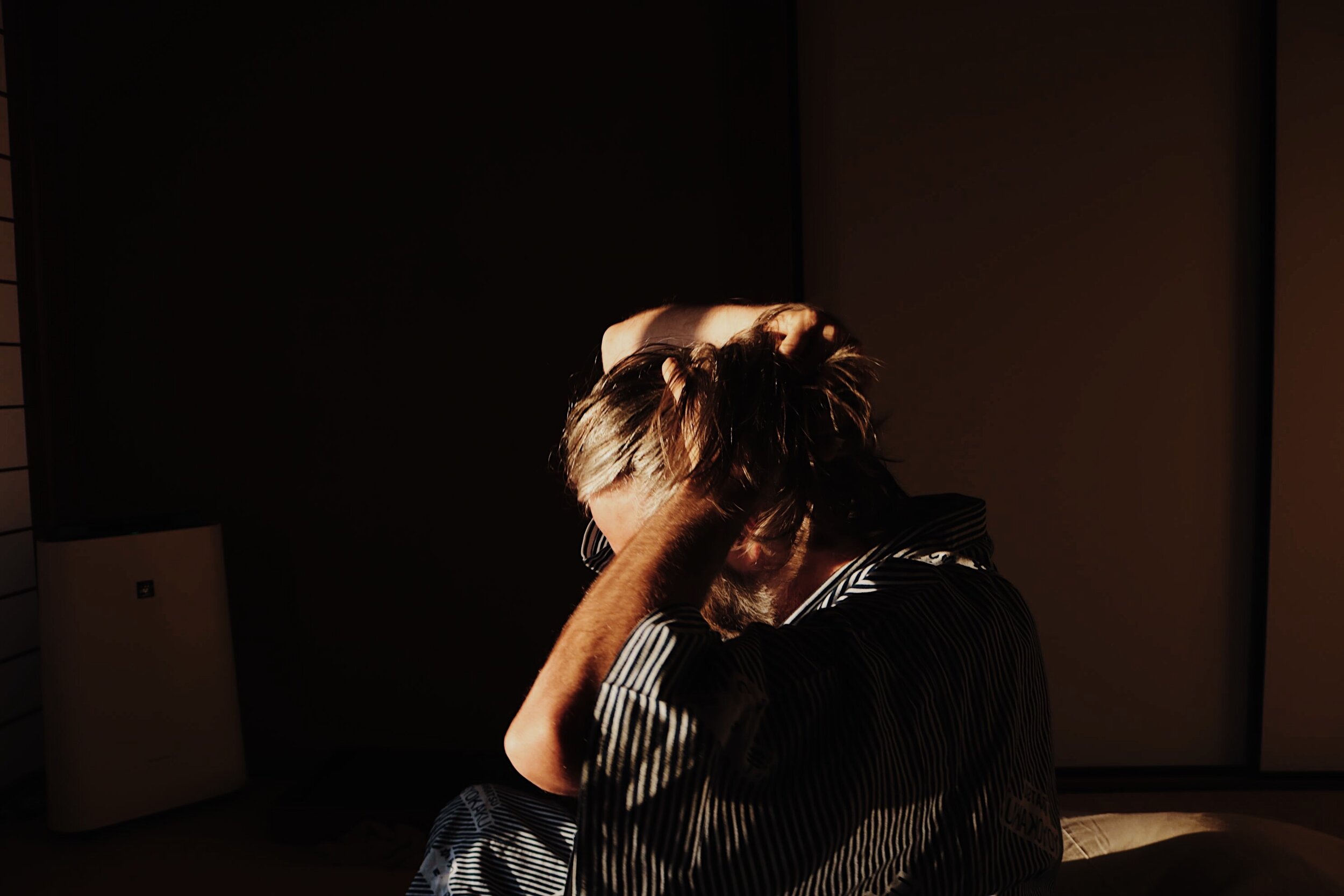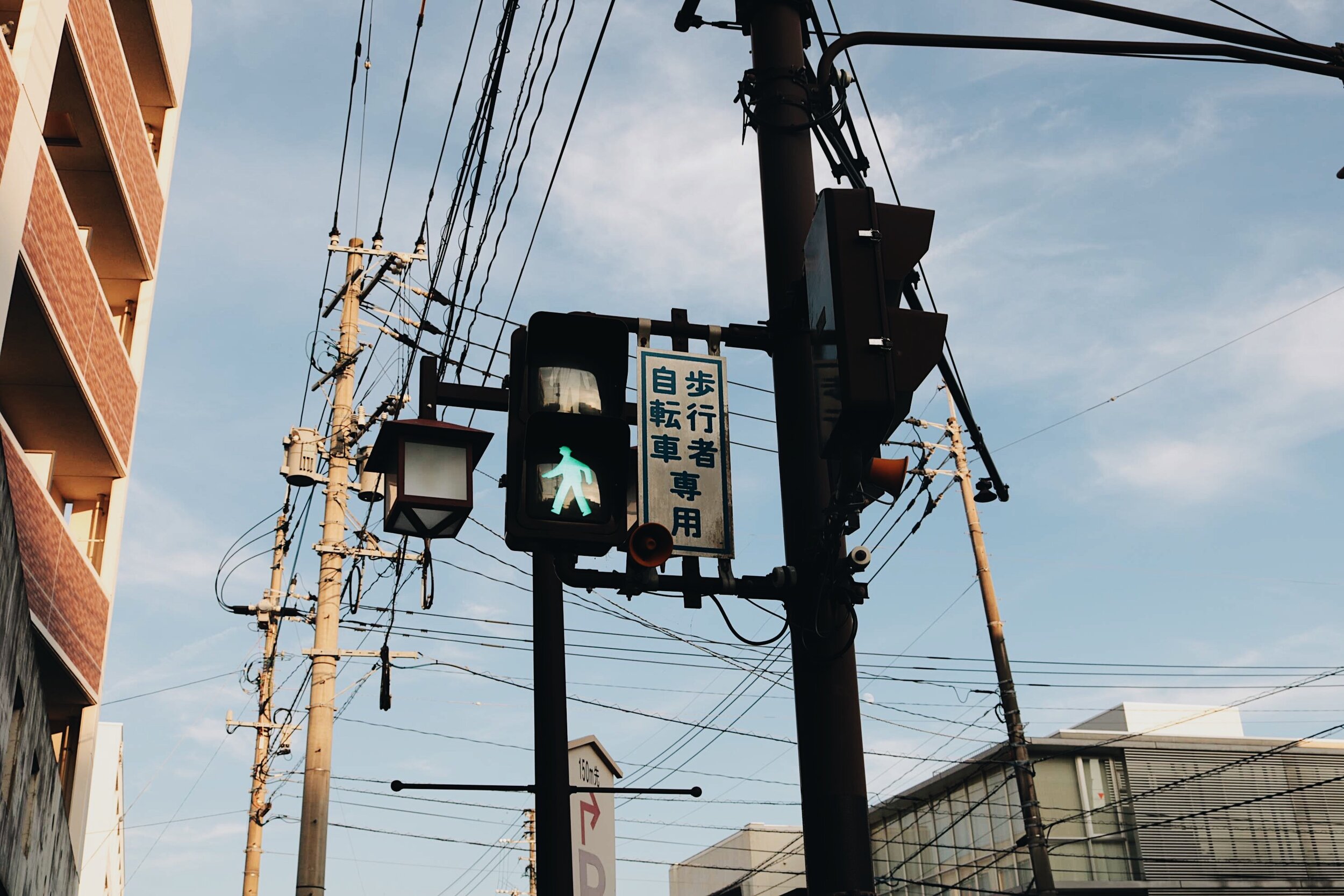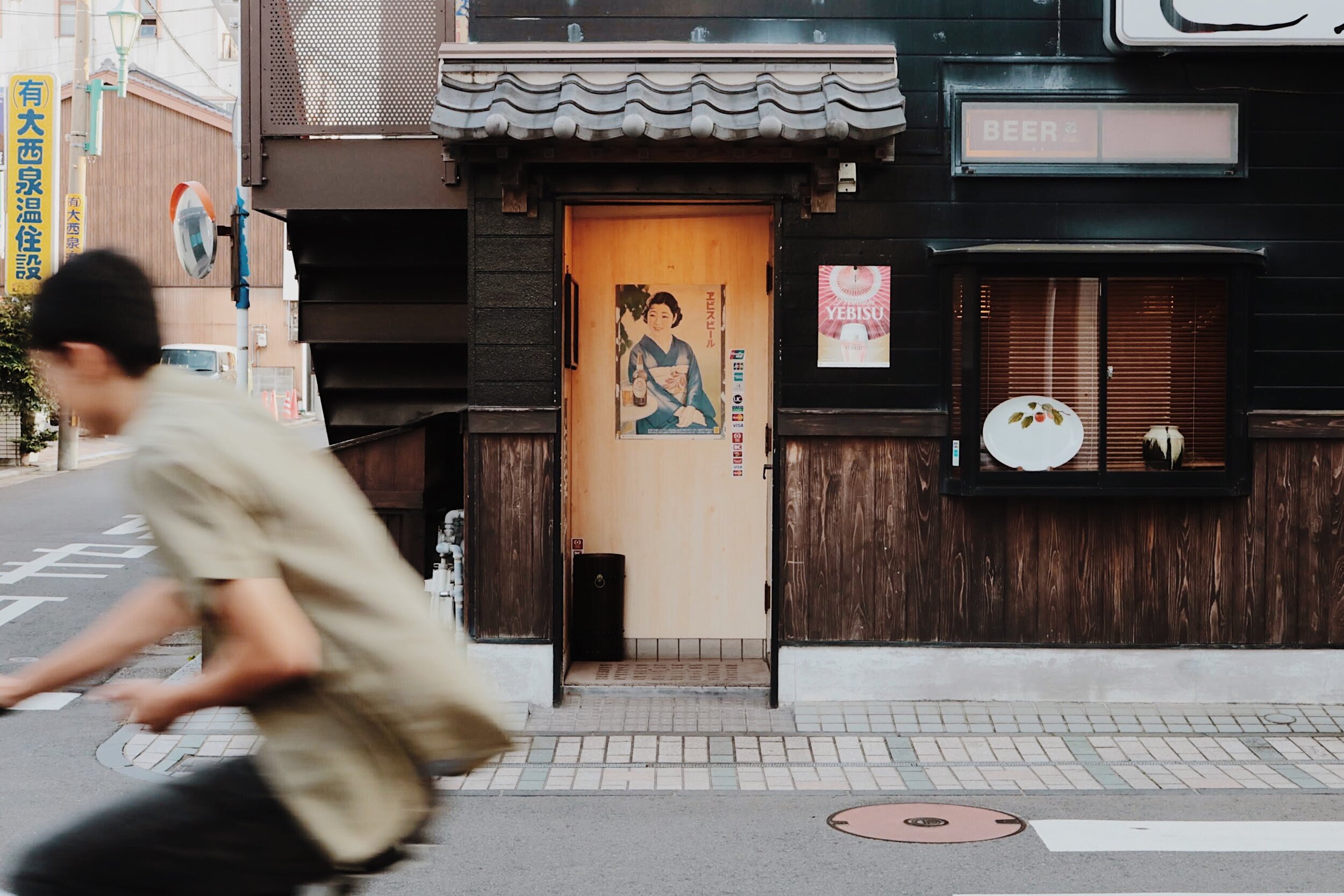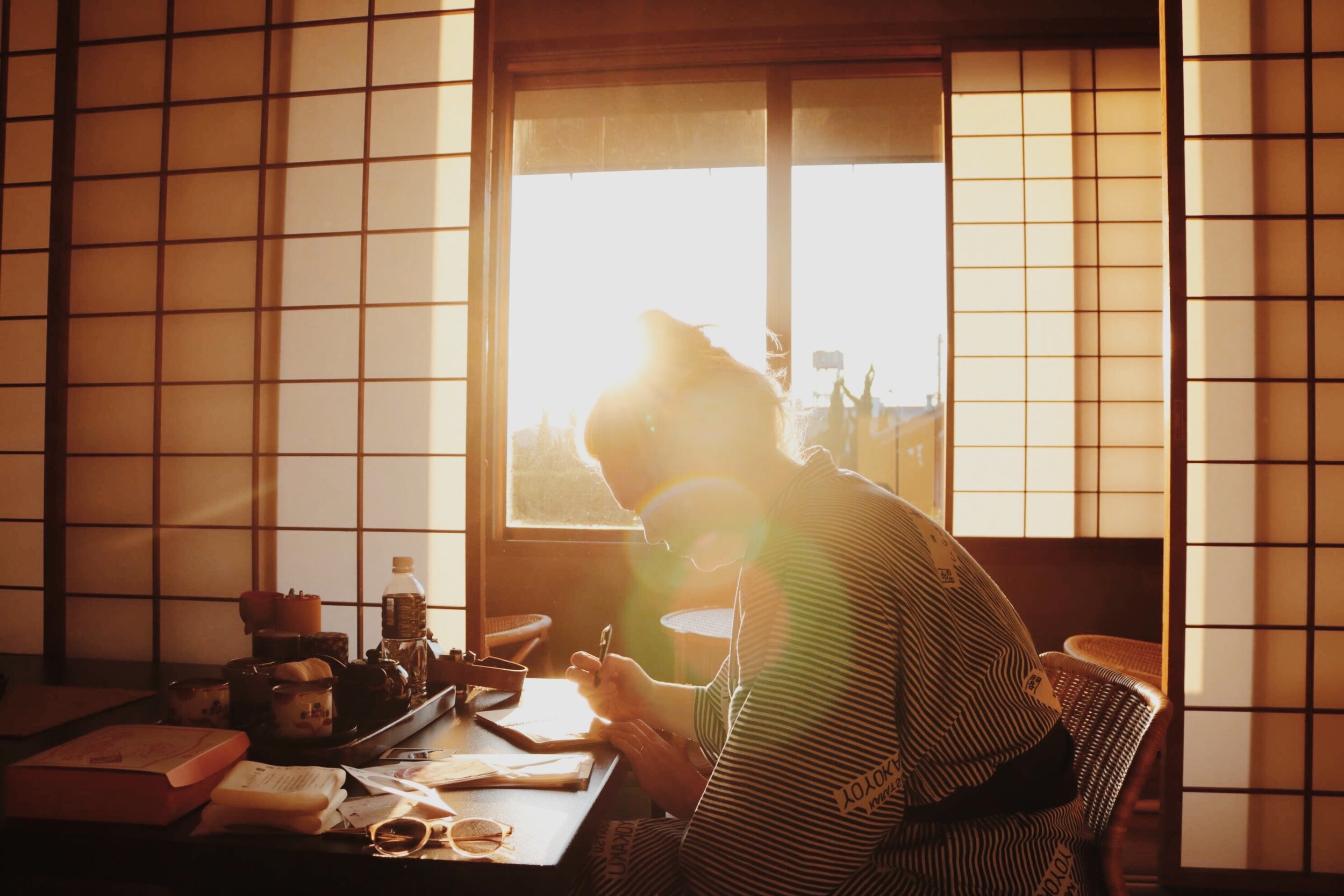YOYOKAKU - RYOKAN IN KARATSU
A trip to Japan is not complete without a stay in a Ryokan. A traditional hotel that seeks to keep the ancient cultures of exploration of beauty, fleeting moments, impeccable hosting and perfection in imperfection. Our stay at Yoyokaku was perfect.
It was precisely how I imagined Japan could be.
Ryokans are the traditional Japanese hotels - with the impeccable gardens that are visible through your rice paper windows as you sit drinking tea on your Tatami mat. In the evening, lovely hosts came and moved our chairs out of the way and set our sleeping mats on the floor, surprisingly comfortable, especially after our dip in our essentially private Onsen (a very hot communal bath. Onsens had me very nervous before we went and we spent a very long time watching a video on how-to but really the long and short of it is, men & women split up, you go in, take off all your clothes, wash up and tidy up after yourself, then go relax in a hot spring.)
We had a lovely bath before bed, and one before breakfast. It was a perfect way to both start and end the day.
In the morning, while we were eating breakfast, they came in and put our mats away again.
Most Ryokans are prohibitively expensive. This one was affordable at $300 per night for the basic accommodation, and includes breakfast. Dinner could be served in your room for an additional $150/person. You may not be able to complete your trip this time depending on your budget - but Japan and it’s Ryokans aren’t going anywhere. This one has been owned and operated by the same family for five generations. I asked if they redecorate, and she said that they have to, as “we have so many Typhoons.”
We had to opt out of dinner because of the price (worth it, but we can’t afford every luxury we dream of) which led us to wander the empty streets of Karatsu for a long time before finding a place to eat. We ended up at Genyou which is affordable and low-stakes way to try out traditional dinner - Kaiseki - but not quite. Actual Kaiseki was what they served at the Ryokan (with ceremony and high quality ceramics.) What we had was a lovely, multi-dish, interesting, brand-new-to-us foods.
We went to Karatsu because I love ceramics and pottery and Karatsu is home to several master artisans, but other than the Ryokan there isn’t much there. The streets were mostly deserted as we wandered, until the school children left school and went to what appeared to be after-school gym class.
In traditional Japanese aesthetics, wabi-sabi (侘寂) is a world view centered on the acceptance of transience and imperfection.
Omotenashi おもてなし is Japanese hospitality -offering the best service without the expectation of a reward.
Ikebana (生け花, 活け花, "arranging flowers" or "making flowers alive") is the Japanese art of flower arrangement.
In ikebana, it is not enough to have beautiful materials if the materials are not artfully employed to create something even more beautiful. Given a skilled maker, one carefully placed flower can be just as powerful as an elaborate arrangement.
The Lonely Planet described Yoyokaku, as “in a word, ‘Gorgeous’” and it was.
We sat in the morning photographing every corner trying to soak in each moment that we could of our stay. Japan has entire cultural explorations based on finding beauty in the things others don’t notice, or the imperfections that are highlighted by perfection and mastery of craftsmanship.
Repair broken pottery with gold.
Sitting in the golden sun of the sunrise with the shadows lengthening we wrote a Haiku together (it’s not good enough to share.) It felt like the only thing to do.
Kyle argues that the shadows were shortening but I can see the shadows in my mind’s eye. They were growing long.
In the dining room, we watched our neighbours eat their very elaborate Japanese traditional breakfast, for hot tips on how to combine fish with watery rice porridge and steamed eggs with seafood. Elaborate. Beautiful. Delicious. Why can’t I have fish for breakfast more often? I love it when it happens.
how lucky for us
to intentionally spend the time to


























